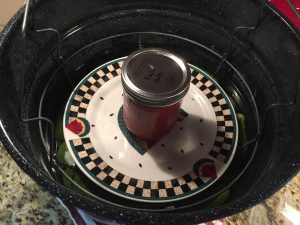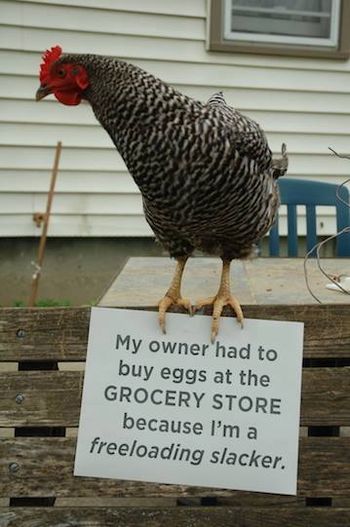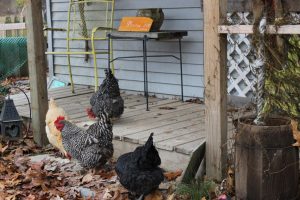From Alaska to New Hampshire, adult goats can handle sub zero temperatures, however we’ve listed some winter care tips for your goats to avoid the obvious and most common pitfalls owners run into during extreme cold.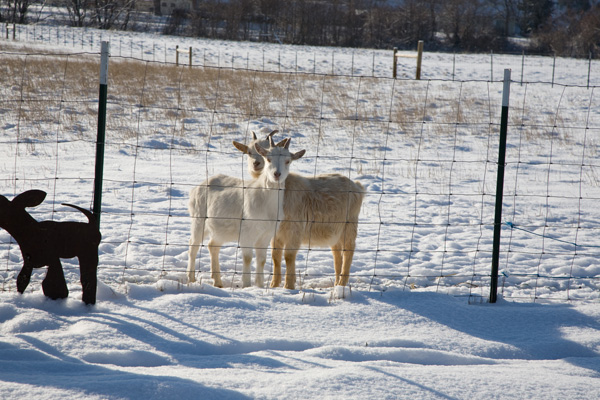
Continue reading
Month: December 2016
Quick Easy Recipe Natural Cough Drops
Quick Easy Recipe Natural Cough Drops
9 Tips To Make Hiking More Enjoyable
9 Tips To Make Hiking More Enjoyable

1. Use your feet/ankles/toes. When hiking uphill, think of the way you get “up” the mountain as coming from your ankles, feet and toes propelling you, rather than your thighs/quads doing all the work. Another way to think of this is: Imagine your back foot pushing you forward rather than your front leg standing you up.
Continue reading
Why You Should Be Raising Ducks Opposed to Chickens
Why You Should Be Raising Ducks Opposed to Chickens
<script async src=”//pagead2.googlesyndication.com/pagead/js/adsbygoogle.js”></script>
<!– Ad 4 320×100 Lg Mobile Banner –>
<ins class=”adsbygoogle”
style=”display:inline-block;width:320px;height:100px”
data-ad-client=”ca-pub-1148920253657048″
data-ad-slot=”7843566012″></ins>
<script>
(adsbygoogle = window.adsbygoogle || []).push({});
</script>
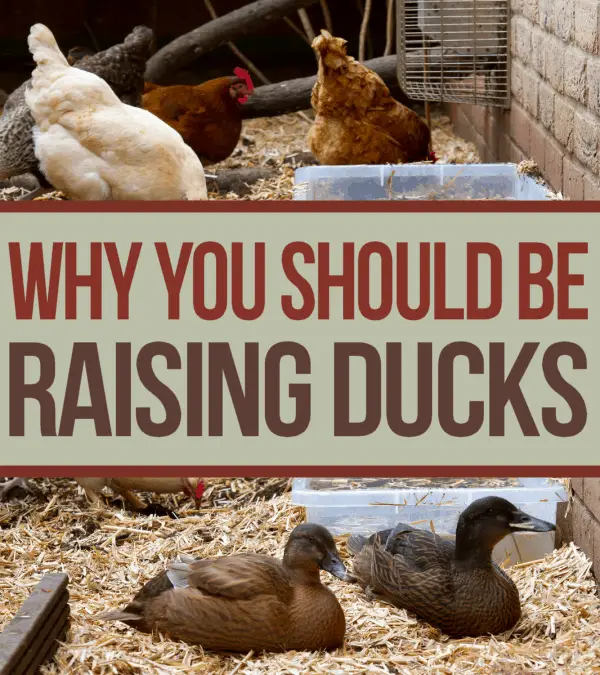 It isn’t uncommon for people to have a flock of chickens in their backyard or on their homestead. Chickens are super easy to raise and produce eggs that can be eaten or sold. Raising chickens for meat is quick and inexpensive as well, which makes them a favorite for those who are living the self-sustainable lifestyle. Chickens are so common, you don’t think twice about seeing a few running around a homestead. They are as natural as weeds. A rooster crowing is synonymous with country life. You are probably accustomed to seeing chickens milling about your place and have never really considered anything else.
It isn’t uncommon for people to have a flock of chickens in their backyard or on their homestead. Chickens are super easy to raise and produce eggs that can be eaten or sold. Raising chickens for meat is quick and inexpensive as well, which makes them a favorite for those who are living the self-sustainable lifestyle. Chickens are so common, you don’t think twice about seeing a few running around a homestead. They are as natural as weeds. A rooster crowing is synonymous with country life. You are probably accustomed to seeing chickens milling about your place and have never really considered anything else.
With that said, are chickens the best small livestock to raise? Is there another option?
You may want to consider raising ducks instead of chickens. Why ducks you ask? Well, we are going to discuss some of the reasons others have opted to go with ducks for their small livestock of choice on their own farm or homestead. The animals are similar in size and both produce eggs and can be eaten as a protein source, but ducks are better for several reasons.
Egg Quality
Many people have never actually tasted a duck egg. They are not very common and when most people think of eggs, they automatically assume they must come from a chicken. Ducks produce eggs on a regular basis as well and for those who have given duck eggs a try, they say they are superior to chicken eggs. Duck eggs have more protein then their chicken counterparts. They are also rich in vitamins A, B-6 and B-12. The eggs are slightly higher in cholesterol and fat, but not so much as to really change the way you would eat duck eggs compared to chicken eggs.
Duck eggs are also better for baking. You will discover many of the fancy bakeries will use duck eggs in place of chicken eggs in their recipes. Duck eggs have a bit of a thicker consistency, almost custard-like, which makes them beautiful additions to cakes, cookies and other fluffy batters. Duck eggs are also bigger than chicken eggs, which means you need less for certain recipes and to serve for breakfast in the morning.
Ducks are Kinder to Your Yard and Garden
Many new chicken owners are not fully aware of the animal’s ability to make mincemeat of a garden or yard. They may be small, but they are mighty diggers. You would be amazed at the size of holes chickens can dig. They can put a small dog to shame. They are excellent mini-tillers and can help get your garden patch ready for planting in the spring, but you need to build tall fences to keep them out of your garden throughout the growing season. Chickens are destructive. They will shred healthy plants and eat your fruits and vegetables within a matter of minutes. Their sharp beaks can break through plastic and get at potted plants and flowers.
Ducks on the other hand, with their flat bills and webbed feet are much gentler on the yard and garden. They can eat a healthy plant, but are less inclined to do so within minutes of you allowing them into the space. They will not dig holes in your yard or garden.
Many people use chickens to help reduce bugs in the yard and garden, but have to worry about them doing more damage than the bugs would have. Ducks are excellent foragers and will be more effective at reducing things like caterpillars and slugs without being quite as destructive. Ducks are mighty foragers and will work harder to get bugs than their lazy chicken counterparts. Ducks take their bug-hunting extremely serious. That is their focus. Chickens tend to scratch more than they actually forage.
Ducks are Hardier in the Cold
Backyard chickens can be problematic for those who live in colder climates. Chickens are not able to withstand the cold and will require a lot of care. Some breeds of chickens will stop laying when it is cold outside. Ducks are not quite so sensitive to the cold. They lay eggs year round. You won’t have to put in quite as much effort to keep the ducks warm as you do the chickens. And most chicken owners will tell you it is tough to keep up with the demands and needs of the chickens during the winter to keep them laying eggs.
Chickens are also more susceptible to disease. Many flock owners expect to lose a chicken or two during the winter because of some disease or an intolerance to the cold. Ducks love the cold water so a little cold weather is not a big deal to them. They can still go out in the cold and snow and thrive. Chickens risk suffering from frostbite and ultimately death if they are exposed to the weather for too long. Ducks seem to have a better knack and instinct for staying warm. They are smart enough to know to tuck their heads under their wing when it is cold out. Chickens will roost with their heads exposed. This can lead to frostbite or death in extreme cases.
Ducks are Friendlier
Lastly, ducks simply make better pets. A duck isn’t going to attack you with a sharp beak or try and scratch you with it’s scary spurs. You don’t have to worry about your little ones getting pecked by an overly aggressive chicken. Ducks tend to be much more mellow and nicer. Watching ducks waddle about your yard is entertaining. They are a sight to see when they take their bath in the pond and baby ducks are absolutely adorable. Is there anything cuter?!
Ducks are certainly not quite as popular as chickens to raise in the backyard, but more and more people are discovering the joys to raising ducks. You don’t have to abandon chickens altogether. You can certainly have both. Ducks and chickens can live side by side in harmony. This means you get the best of both worlds. This spring, check into adding a few ducks to your flock. You won’t be disappointed!
courtesy of homestead & prepper
See also “Care For Chickens During The Winter”
<script type=”text/javascript”>
amzn_assoc_placement = “adunit0”;
amzn_assoc_search_bar = “true”;
amzn_assoc_tracking_id = “americanou00e-20”;
amzn_assoc_ad_mode = “manual”;
amzn_assoc_ad_type = “smart”;
amzn_assoc_marketplace = “amazon”;
amzn_assoc_region = “US”;
amzn_assoc_title = “My Amazon Picks”;
amzn_assoc_linkid = “da8e86a1491ab902bb4f491a85cab05e”;
amzn_assoc_asins = “1603426922,0989268888,1501043803,1601383762”;
</script>
<script src=”//z-na.amazon-adsystem.com/widgets/onejs?MarketPlace=US”></script>
14 Day Pickle Recipe and Garden Tips
14 day pickle recipe and garden tips with a brief preview video for the best practices of growing, maintaining, picking and storing cucumbers.
<script async src=”//pagead2.googlesyndication.com/pagead/js/adsbygoogle.js”></script>
<!– Ad 1 Auto Size Responsive –>
<ins class=”adsbygoogle”
style=”display:block”
data-ad-client=”ca-pub-1148920253657048″
data-ad-slot=”6925236010″
data-ad-format=”auto”></ins>
<script>
(adsbygoogle = window.adsbygoogle || []).push({});
</script>
14 Day Pickles – Full Recipe
Here is the full recipe for Grandma Ida’s 14 Day Pickles. I hope you enjoy these as much as our family does.
Ingredients
75 (3-3.5” in length) cucumbers (1 peck)
2 cups Coarse Pickling Salt
Boiling Water
10 cups Sugar
5 cups vinegar
3 tablespoons Alum
18 drops Oil of Cloves
18 drops Oil of Cinnamon
2 tablespoons celery seeds
For sweet/hot pickles: add 20 – 30 jalapeno peppers
Directions
Day 1:
Place clean cucumbers in a stone jar, glass or enameled container. Combine salt and 1 gallon water. Bring to a boil and pour over cucumbers. If you want to add some heat to the pickles, add the jalapenos at this point. Cover with a plate and weight down. Brine must cover cucumbers. Let stand 7 days, but stir the cucumbers every day to discourage formation of film.
Salting Curing And Smoking Hog Meat
Salting Curing Cold Smoking Hog Meat 
We add a little flavor today and show you how the old timers cured meat. Tim Farmer heads back to Bill Dixon’s smokehouse in Harlan County. With pork on the butcher block, see tricks to salt-curing, sugar-curing and a technique using cold smoke.
courtesy KYAfield
See Also Cooking Deer Backstrap
Back Roads Kentucky Knife Maker
A Kentucky knife maker from Jessamine County who takes us through the steps of crafting a knife. Nick Peel is a real craftsman doing tremendous work in Kentucky!
Courtesy of KYAfield
See also “Tapering A Table Leg Using a Joiner”
Was Jesus Really Born At Christmas?
Was Jesus really born at Christmas? Tune in for some humorous and fun factual anecdotes that you might not have been aware of.
courtesy oflaughing historically
See also “Hot Chocolate In The 19th Century”
Interesting Facts And Trivia About Reindeer
Interesting facts and trivia about reindeer. Stay tuned for a surprise ending.
Video courtesy of animal facts encylopedia
Cooking Deer Backstrap
On Frozen Pond
On Frozen Pond
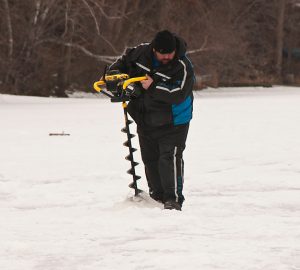
Years ago, when I had more strength than common sense, I’d come out to our pond during the deep winter months carrying a chainsaw and a sledgehammer. Several times each week, you could see me pounding away during the low light of dawn, attempting to create holes in the ice in order to save the fish from their desperate plight below. Then one morning I threw my back out and the fish didn’t seem so important to me. I wasn’t able to come outside for several weeks, and you know what? I didn’t seem to be so important to the fish either. Continue reading
The Origin And Beauty Of Yosemite National Park
The origin and beauty of Yosemite National Park on display during an interview with nation park ranger Shelton Johnson.
courtesy of courtesyfinleyholidayfilms
For more of America
Multnomah Falls, Oregon
Multnomah Falls Oregon
Beautiful Multnomah, Latourell and Horsetail Falls along the Columbia River Parkway in Guy Talbot W. State Park, near Troutdale Oregon.
More Scenic Road Trips
Dead Beat Chicken
Christmas Tree Farm
A visit to a Christmas Tree Farm in Cookeville, Tennessee.
Courtesy of Live Green Tn
It Isn’t hard To Be Thankful At Thanksgiving When You Don’t Have To Do The Dishes
Chicken Winter!
Chicken Winter!
See Also “And Penguins Are Practically Chickens!”
Hot Chocolate In The 19th Century
Hot Chocolate In The 19th Century
Courtesy of Jas. Townsend and Son, Inc
Cooking Deer Backstrap
Cooking Deer Backstrap
Tune into youtube for Seasoning Firewood
All Roads Lead To Heaven
Caring For Your Chickens During Winter
A few quick helps for those folks experiencing their first winter with chickens and a quick refresher for the veterans as temperatures drop. Caring for your chickens during winter isn’t intended as an exhaustive list and your location and situation may be unique, so consider this a general guide.
- Late fall is a common time for chickens to molt. Don’t freak if you are finding mounds of feathers in your coop. They aren’t having knock down drag out fights while you sleep. It is normal for a chicken to experience their first molting period around a year and a half. Their feathers will return in as little as three weeks or as much as a few months.
- Do not insulate your chicken coop. The natural tendency is we want to ensure our chickens are warm, but sealing a chicken coop is a recipe for a homemade gas chamber. Air circulation in their structure is vital to their winter health. Chickens expel moisture in their breath; a group of hens in an enclosed area will increase moisture levels in the air, which can freeze during sub zero temperatures and can lead to frostbite. Condensation on henhouse windows is a sign that there is too much humidity. Air movement is also vital when the droppings “pile up”. Cleaning their coop isn’t always practical or even possible during the dead of winter. Chicken feces produces ammonia, which is of course harmful to your birds and can irritate their lungs. Our coop happens to be an old garden shed, with a few cracks in the walls and gaps between the boards. It might not be inviting for you or me, but it allows a continual flow of fresh air inside.
- Have at least one heated water bowl available to your chickens. We keep one both outside and inside their coop. Chickens will need water regardless of temperature and activity, but the frozen stuff does them no good. The larger the bowl the better.
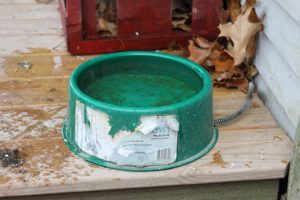
- Heat lamps are tempting when you are looking out your kitchen window during a January blizzard, imagining yourself frozen to a roosting pole, but they aren’t always the best thing for your birds. Yes, they may be needed during the bitterest of nights, but most of the time they will do more harm than good. Chickens, like most any other creature do a pretty good job of adapting to the climate, but a heat lamp will inhibit a chicken’s ability to tolerate the cold more than help and once they begin to depend on it, they will tend to remain indoors. The risk to their health will also increase if the power should ever fail and the lamp goes out.
- During severe and/or extended freezing temperatures, chickens can experience frostbite along their combs and waddles (the red growths on their head and below their chins). A dab of vaseline or even something like coconut oil rubbed along the exterior can go a long way to preventing frostbite in your flock. They typically will stand on one foot when outside during the winter as a means of staying warm. This is typical and doesn’t necessarily mean they are in distress, however you can also apply vaseline to the leg and talon. It isn’t fool proof and you will still need to monitor your birds for signs of frostbite ie discoloration, swelling, bleeding.
- It is true that Chickens do get cabin fever. Boredom will result from the limitations of snow, frozen ground, and a general lack of exercise. You may even see increased signs of aggressiveness and fighting. A few things in the yard or inside their coop, such as a chicken swing, or a walmart bag with some greens or vegetables hung from the ceiling by a string (like a pinata) will do a lot to break up the monotony. It gives them something to do besides peck each other on the head.
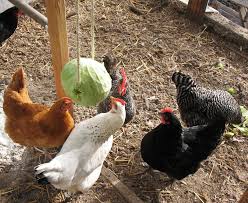
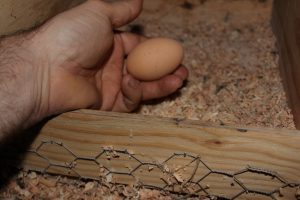 Gather eggs as soon as you possible can. A frozen egg can crack and once it is indoors and thawed can allow bacteria to grow inside of the egg. If you have any doubts about an egg’s condition, throw it out.
Gather eggs as soon as you possible can. A frozen egg can crack and once it is indoors and thawed can allow bacteria to grow inside of the egg. If you have any doubts about an egg’s condition, throw it out.- Keep their bedding fresh and deep and dry. While it is okay for a chicken coop to be a bit “drafty” it is key that it remain dry during winter. This means anything from roof leaks, to standing water on the floor to soiled bedding. Your hens and roosters should not have any exterior contact with moisture inside their shelters.
Wen 3920 16″ Scroll Saw Review
Wen 3920 16 Scroll Saw
Wen 3920 16″ Scroll Saw Review
For more woodworking reviews check out The Porter Cable AC160 Benchtop Joiner.


